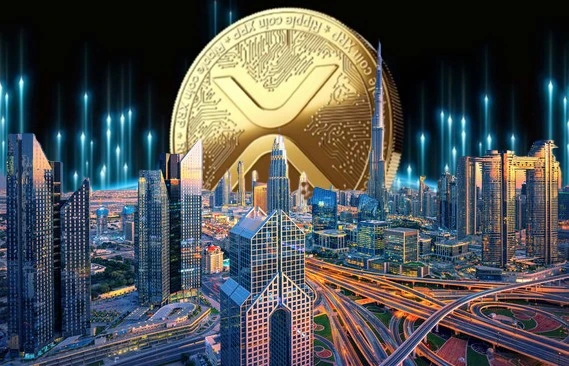Green Light in the Gulf
The DFSA’s nod is a coup for Ripple, marking its Middle East debut after securing an in-principle approval in October 2024. With its regional hub in DIFC since 2020, Ripple now has the green light to roll out blockchain-based payment services across UAE businesses.
The license, Ripple’s first in the region, builds on its global footprint with over 60 jurisdictions, from Singapore to Georgia, already backing its operations.
“The UAE is a goldmine for efficient payments,” said Reece Merrick, Ripple’s Middle East and Africa Managing Director. “This license lets us meet that demand head-on.”
CEO Brad Garlinghouse praised the UAE’s forward-thinking regulators. “Dubai’s clarity is a magnet for crypto growth,” he said. The move comes as 20% of Ripple’s worldwide clients – banks, fintechs, and payment firms – already operate from the UAE, a base primed for its next leap.
Tapping a Trade Titan
The UAE’s economic muscle makes this license a big deal. Its $40 billion cross-border payments sector, part of a $400 billion trade engine per World Bank stats, is ripe for disruption. Legacy banking’s slow settlements, sometimes three days, clash with the UAE’s fast-paced trade hubs like Dubai and Abu Dhabi.
Ripple’s XRP Ledger slashes that to seconds, cutting fees that often hit 5% per transaction. Its stablecoin RLUSD, launched in late 2024 with a $130+ million market cap, adds firepower with instant, stable settlements.
The DFSA’s recent approval of stablecoins like USDC in DIFC only sweetens the deal.

Ripple’s Regional Ambitions
Beyond payments, Ripple is planting deep roots. 1 B XRP Fund, a startup incubator, partnered with DIFC’s Innovation Hub last month to support blockchain ventures.
A $1 million pledge to NYU Abu Dhabi for blockchain research signals long-term bets. With XRP’s market cap soaring to $130 billion—up 200+% since March 2024, per CoinMarketCap – this license could drive adoption further…
Ripple’s U.S. SEC battle, which has been dragging since 2020, is also nearing a close. Analysts expect a settlement by mid-2025, potentially unshackling more expansion. The UAE could be the launchpad for that next phase.
Businesses Feel the Pull
For UAE firms, Ripple’s arrival is practical gold. A 2024 Ripple poll showed 82% of regional finance leaders want blockchain’s speed; 64% prioritize cost cuts. From retailers to oil traders, the promise of real-time, low-cost transfers is a lifeline in a trade-driven economy.
Yet risks linger. XRP’s recent 11.8% dip in a week highlights crypto’s rollercoaster nature. Regulatory harmony across the UAE’s emirates also remains patchy. DIFC’s rules don’t yet blanket the nation.
Global Eyes on Dubai
Ripple’s DIFC foothold could spark a chain reaction. As the Bank of England trials Ripple’s Interledger tech and U.S. firms like Grayscale mull XRP ETFs, the UAE’s embrace might nudge other regions. For Emiratis, cheaper remittances – a $24 billion sent abroad in 2024, per the UAE Central Bank – could hit home.
Globally, it’s a case study in crypto meeting regulation, not dodging it. As 2025 heats up, Ripple’s UAE play might just redraw the financial map.
He has worked with several companies in the past including Economy Watch, and Milkroad. Finds writing for BitEdge highly satisfying as he gets an opportunity to share his knowledge with a broad community of gamblers.
Nationality
Kenyan
Lives In
Cape Town
University
Kenyatta University and USIU
Degree
Economics, Finance and Journalism


Facts Checked by Will Wood



 Fact checked by
Fact checked by 
 eabungana@gmail.com
eabungana@gmail.com 